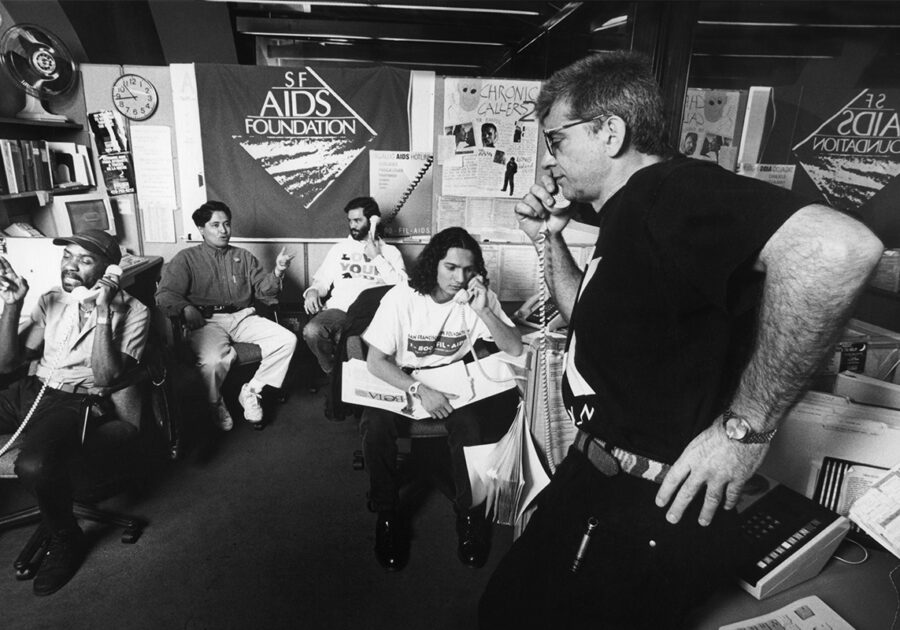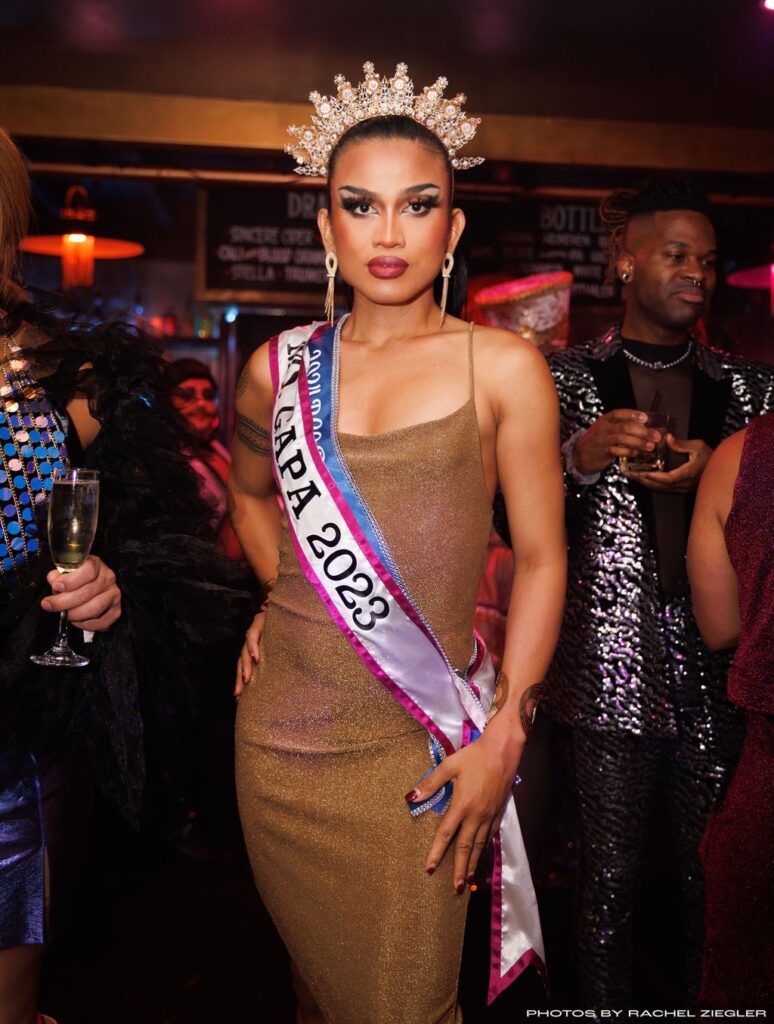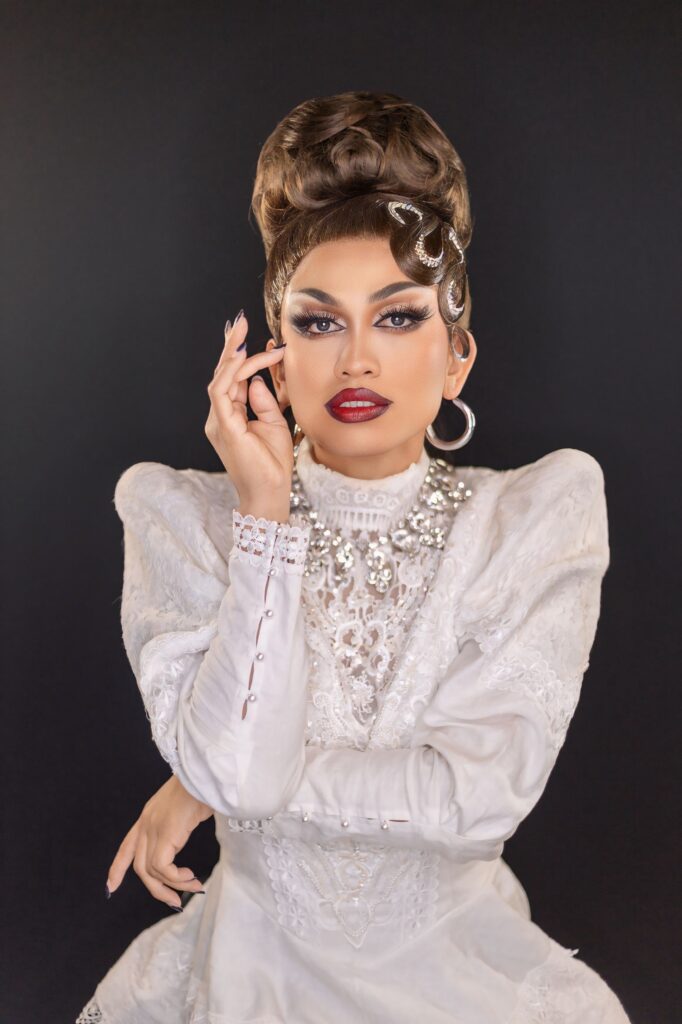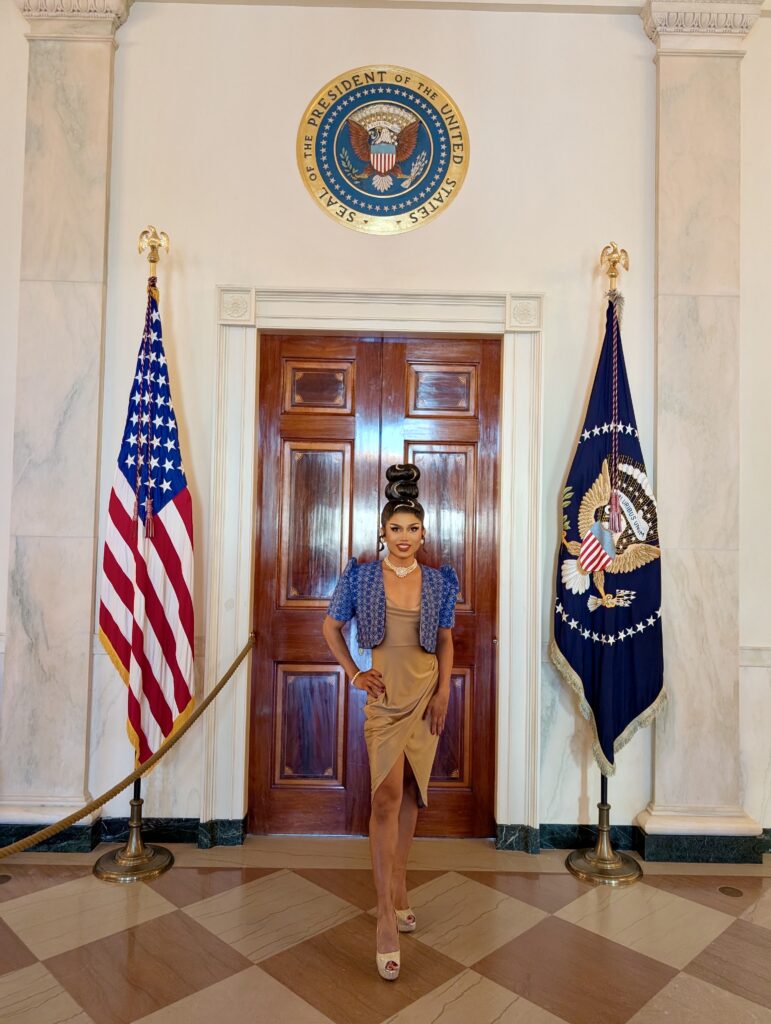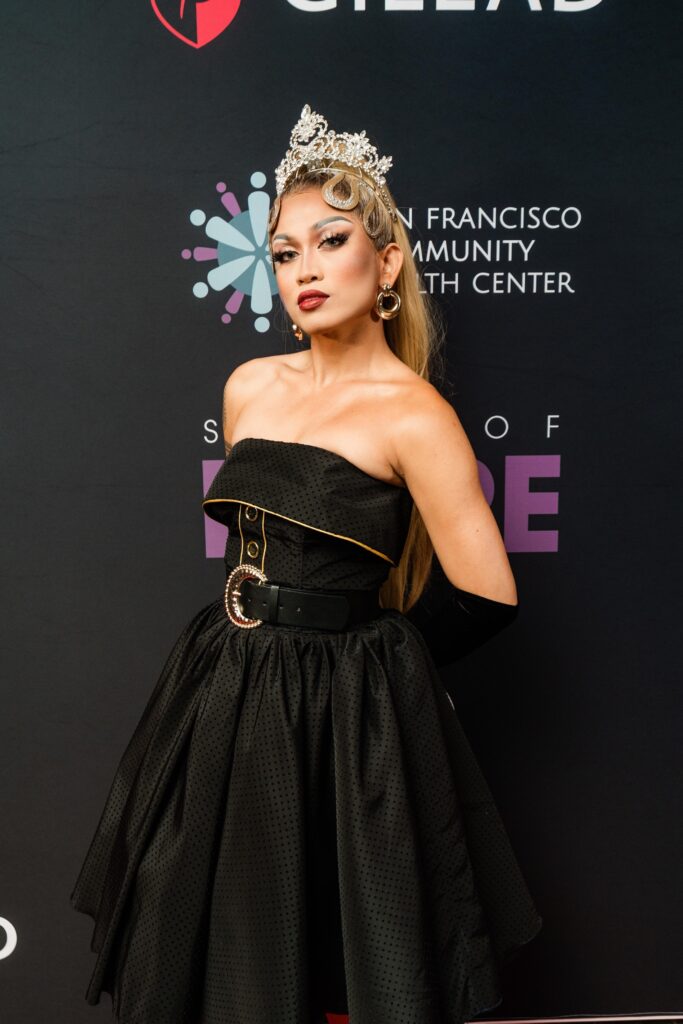Hear from Mx. Kiki Krunch, a trans woman of color who received life-saving services from SFAF
One of the first things the Trump administration did upon taking office was sign an Executive Order gutting diversity, equity, and inclusion initiatives and programs and erasing transgender people from legal recognition. Lambda Legal took swift action in response, filing not one, but two lawsuits against Trump’s harmful anti-LGBTQ+ agenda.
San Francisco AIDS Foundation (SFAF) v. Trump is one of our lawsuits that directly hits back at Trump’s attempts to defund organizations that provide life-saving services to LGBTQ+ people and everyone living with HIV, communities which are often pushed to the margins.
San Francisco AIDS Foundation, the named plaintiff in our case, has been an essential resource for its local community for more than 40 years. Through sexual health and substance abuse services, advocacy, and community partnerships, the organization is committed to building a future where health justice is achieved for all people living with or at risk for HIV and where HIV status does not dictate or determine one’s quality of life and right to thrive.
To highlight the organization’s vital work, we sat down with Mx. Kiki Krunch, a trans woman of color from the Philippines who lives with HIV. Thanks to SFAF, she not only obtained health services that changed her life but also found community support and eventually a career at the San Francisco Community Health Center (SFCHC), another plaintiff organization in our case. Our conversation exemplifies the deep impact that organizations like SFAF have on the people they serve.
Can you tell us a little about yourself — who is Kiki?
My name is Kiki, also known as Mx. Kiki Krunch. I’m an immigrant, a proud transwoman of color, and a person living with HIV. By day, I work full-time as the Community Engagement Coordinator at San Francisco Community Health Center. By night, I paint the town red with my fabulous drag performances across the Bay Area. Whether I’m on stage or in the streets, my work centers joy, visibility, and community power.
What brings you joy these days? What lights you up?
Honestly—community. I love being surrounded by people who get it, show up with heart, and remind me why we keep pushing forward — that fills my heart. Whether I’m in full drag as Mx. Kiki Krunch or showing up as Kiki in the work I do, it’s those in-between moments: laughter over food or drinks, a hug after a long day, a fierce performance that leaves folks cheering and crying at the same time. Joy is resistance. Joy is being loud, brown, trans, and proud in a world that tries to silence us. That’s what lights me up.
What are some things you’re proud of in your journey — big or small?
I’m proud of choosing myself, again and again, while serving the community. From leaving everything behind to start over as an immigrant, to stepping fully into my identity as a transwoman, to carving out space for joy and justice through drag and community work—every step has been an act of resistance and love. This year, I was honored with the Daphne Dorman Trans Artist Award, nominated as a Community Grand Marshal for SF Pride, and bestowed the title of Imperial Crown Princess of the Imperial Court of San Francisco. These recognitions remind me that our stories, our labor, and our joy matter. I’m proud of becoming Mx. Kiki Krunch and using that platform to uplift our QTAPI siblings. I’m proud of being part of movements that center healing and visibility. And I’m proud of the quieter wins, like finding my chosen family, learning to rest, and still showing up with glitter in my eyes and fire in my heart.
How do you define community, and what does it mean to you to be part of one?
To me, community means chosen family—people who show up for each other with love, accountability, and purpose. It’s not just about shared identity, but shared care. Being part of the community means knowing you’re not alone in the fight, in the joy, in the healing. It’s where I find strength, where I give back, and where I feel most alive.
How did you first get connected to SFAF and the SFCHC? What kind of support have you received from them, and how has it impacted your life?
When I moved to San Francisco, I was searching for more than health care—I was searching for a reason to keep going. I was scared and deeply anxious. I didn’t know anything about this country, had no family in the Bay Area, and everything felt overwhelming. As a person living with HIV, I wanted to stay healthy and undetectable, but at the time, it felt like I had no choice and no motivation to live anymore. I couldn’t rely solely on sex work and doing drag to survive. I was tired of couch-surfing, constantly moving with nowhere to land. I wanted to give up—I truly thought about ending my life.
An acquaintance encouraged me to check out Strut at SFAF, and that visit changed everything. They helped me access HIV medication and walked me through getting Medi-Cal. I still remember the staff member who supported me—they gave me hope and a shot at a second chance. That same person connected me to the LGBT Asylum Project, which is now handling my asylum case.
Later, I connected with SF Community Health Center through a good friend who welcomed me into inclusive community events and spaces. When I finally got my work permit, I landed a job at SFCHC. That opportunity saved my life. My role as a Community Engagement Coordinator gave me stability to put food on my table, a roof over my head, and helped me access gender-affirming care, including surgery.
The support I received from San Francisco AIDS Foundation and SFCHC helped me realize my full potential. I went from surviving to living, and now I’m proud to serve the same community that once held me when I was ready to give up.
Why is it important that the LGBTQ+ community have access to services and support like this?
Access to services and support is not just important, it’s lifesaving. As a trans immigrant woman, I know firsthand how isolating it can be to navigate systems that weren’t built for us. Having culturally competent, gender-affirming, and trauma-informed services means that our people don’t have to choose between survival and authenticity. It means we can access health care without fear, find community without judgment, and reclaim our narratives with pride.
These kinds of services don’t just offer resources, they offer hope, healing, and the possibility to dream bigger. For so many in our LGBTQ+ family, especially our trans, immigrant, and BIPOC siblings, these spaces are the first time we are seen, respected, and celebrated for who we are. That’s the kind of care every person deserves.
What does it feel like to be truly seen and cared for in a space that affirms who you are?
It feels like exhaling after holding your breath for years. To be truly seen and cared for—as a transwoman, an immigrant, a person living with HIV—is deeply healing. It’s walking into a space where you don’t have to shrink yourself or explain your existence. It’s being called by your name, honored for your truth, and met with care that nourishes not just your body, but your spirit.
And beyond being affirmed, I’m celebrated. Wherever I go, I feel that my voice and my opinion matter. I’m not just included, I’m uplifted. I’m seen not only as a leader, but as a nurturing mother figure who looks out for the community. That kind of recognition reminds me that I belong, that my care is felt, and that I’m helping build the kind of world I needed when I was younger.
You now work at SFCHC— what inspired you to take that step?
I took that step because someone once opened a door for me when I needed it most. I wanted to do the same for others. SFCHC didn’t just offer me a job—they gave me purpose, dignity, and a chance to serve the very community that helped save my life. Working here felt like coming full circle.
What do you love about your work? How do you see yourself helping others walk their path?
I love building spaces where people feel seen, affirmed, and celebrated. I love creating joy through community events, and being a connector—linking folks to care, to culture, to each other. As someone who’s been through the struggle, I try to lead with compassion, humor, and truth. Whether it’s a hug, a referral, or a drag show, I want people to know they’re not alone.
What lessons from your life do you carry into your work with the community?
That survival is sacred. That vulnerability is a strength. That we all deserve access, not just to healthcare, but to joy, to art, to possibility. I carry the lessons of resilience, of chosen family, of knowing what it’s like to feel helpless. So now, I show up with the intention to make sure no one in our community feels forgotten.
When you think about everything you’ve been through, what keeps you going?
The community keeps me going. Every time I see someone walk into our space and feel safe for the first time, every time someone tells me they feel seen, I’m reminded why I fight. I’ve been at rock bottom, and I’m still here. So, I keep going for the people who think they can’t. I keep going for the girl I used to be, who needed someone like me.
What’s something you wish people understood better about trans/LGBTQ+ people navigating care and community?
That we carry so much before we even walk into the room. That care isn’t just clinical, it’s emotional, cultural, and spiritual. We don’t just need access; we need affirmation, respect, and understanding. We are not asking for special treatment, we’re asking to be treated with dignity.
What kind of future are you dreaming of — for yourself, and for the community you serve?
I dream of a future where trans and queer people of color don’t have to fight so hard to simply exist. Where we are housed, healthy, and celebrated. For myself, I dream of rest, art, and a home filled with joy. For my community, I dream of abundance—where our stories are honored, our needs are met, and our futures are limitless.
If someone out there is watching your story and feeling afraid or alone, what would you want them to hear from you?
You are not broken. You are not alone. Your story matters—even the messy, painful parts. Keep going. There is a community out here waiting to love you, to hold you, and to walk with you. I know because I’ve lived it. And if you ever need a reminder, you can find me. I’ll be cheering you on.
And to the allies—
Don’t just show up when it’s easy or trendy. Show up when it’s hard. Listen, uplift, and make space. Real allyship is action. We don’t need saving, we need solidarity. Use your voice to amplify ours, not speak over us. And always remember, being an ally is a practice, not a title.

